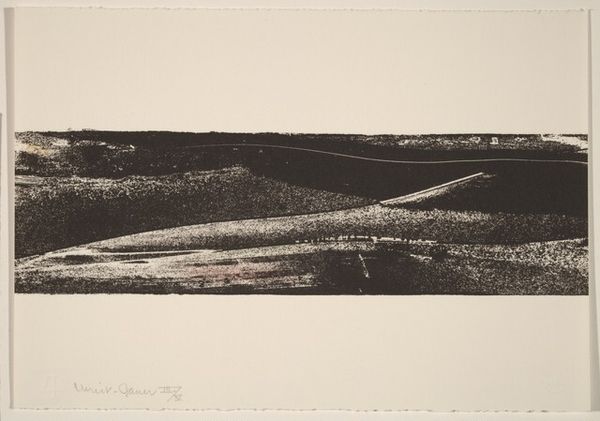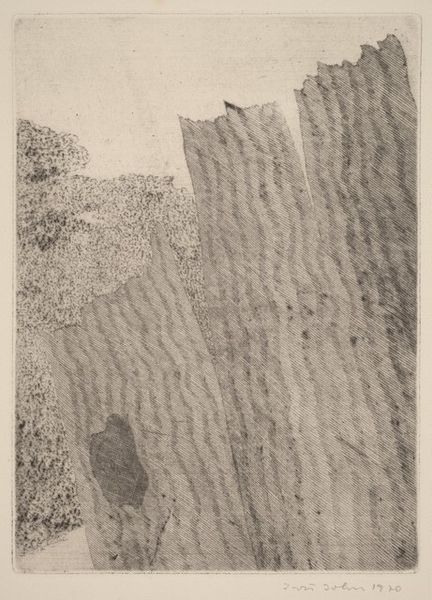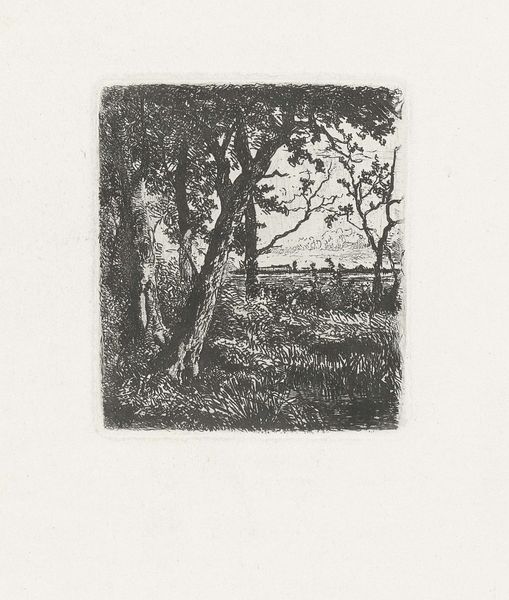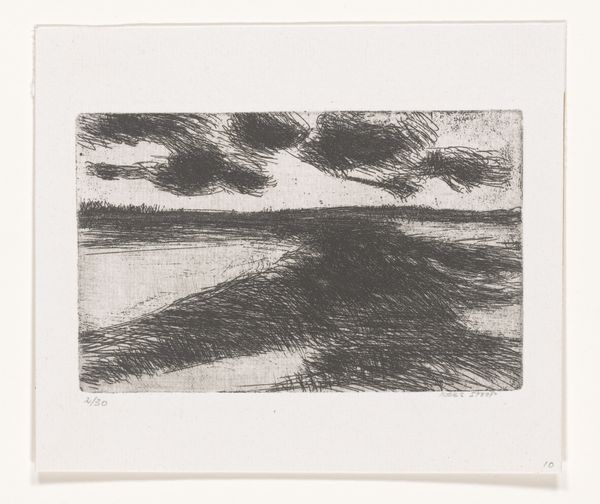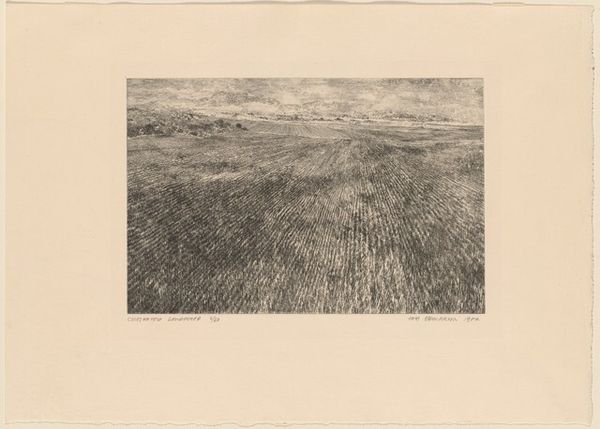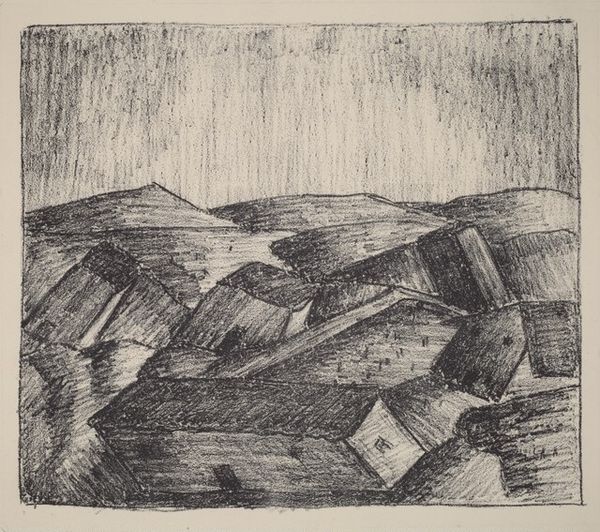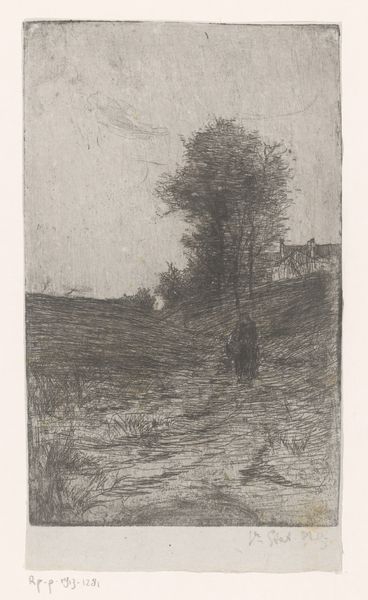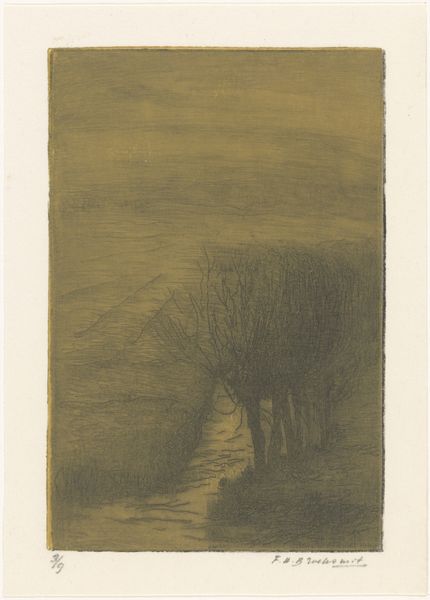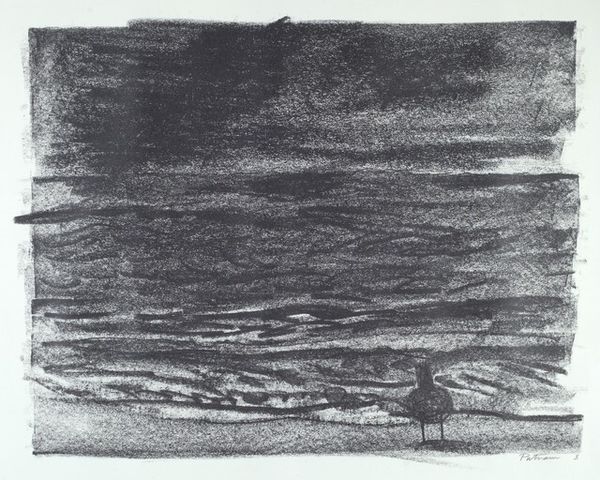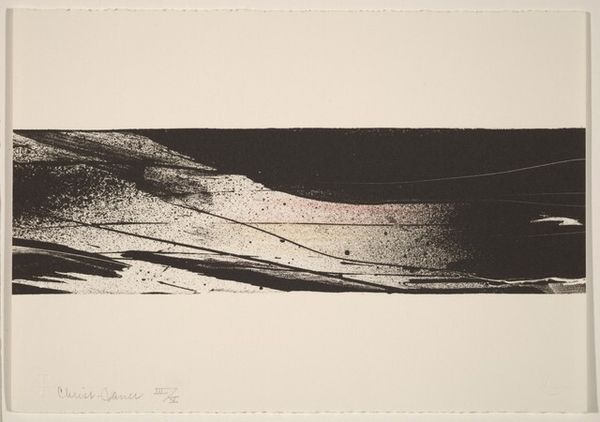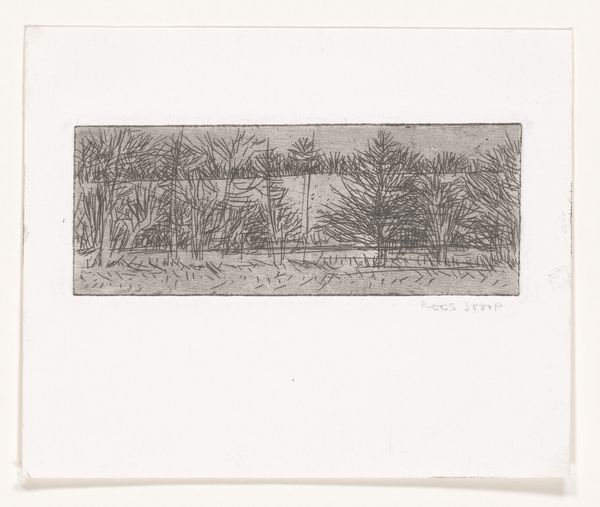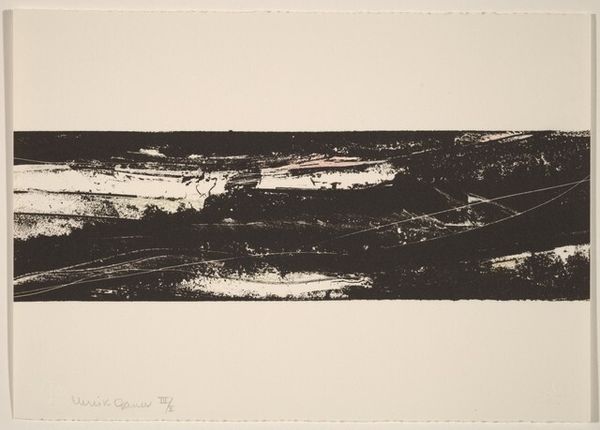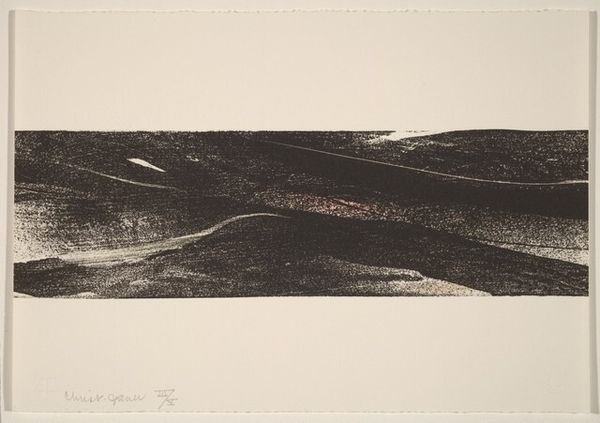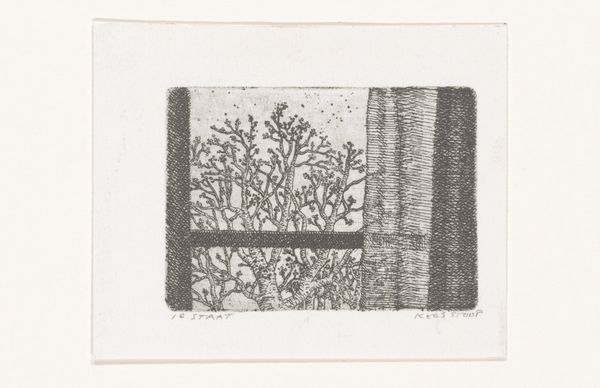
print, etching
# print
#
etching
#
landscape
#
pencil drawing
#
realism
Copyright: National Gallery of Art: CC0 1.0
Curator: Right, let's dive in. This etching, entitled "Fields," was created by Leonard Lehrer in 1966. Editor: Oh, hello! The image makes me feel a bit lost in the best way. The land looks infinite somehow, even in such a small frame. It’s… ruminative. Curator: Interesting. The repetitive mark-making does create a sense of expansiveness and invites contemplation, perhaps a comment on agrarian life in the mid-20th century? Lehrer taught printmaking; he may have aimed for broad distribution in response to urbanization trends. Editor: Agrarian, hmm. For me it has more to do with childhood, looking across landscapes of the mind. It almost vibrates with a dreamlike intensity, even though it is rendered with such painstaking detail. You know, all those little, insistent scratches! Curator: Those scratches, as you call them, speak to the artist’s masterful understanding of the etching process. Notice how Lehrer modulates tone by varying the density and depth of the etched lines, demonstrating a very specific control of light and shadow. Printmaking afforded wider access to original art during the period. Editor: True. I can practically hear the burin on the copper plate. Yet there's a real sensitivity at work here; each scratch feels intentional. Almost like musical notes in a score! Is it just me, or is it subtly theatrical too? Maybe because it feels like the lighting designer has nailed a sort of 'realist' but hyper-moody effect? Curator: I see what you mean; there's certainly a constructed perspective. Lehrer taught widely across the United States and was involved in various social activist movements. We see realism here, but a perspective subtly charged with his experiences during a turbulent era. Editor: A troubled bucolic…I like that. It makes me think, can landscape capture social unrest and become quietly rebellious just by virtue of what is emphasized or omitted? Curator: Indeed, artistic expression inevitably reflects societal concerns. The intentional construction of a field, as presented by Lehrer here, is not neutral at all, it is quite the commentary. Editor: Food for thought! I will not be able to look at an open field quite the same way again after pondering Lehrer’s vision here. Curator: I agree; these subtle landscapes offer far more than what one sees on the surface, particularly as reflections of historical forces shaping the artist.
Comments
No comments
Be the first to comment and join the conversation on the ultimate creative platform.
